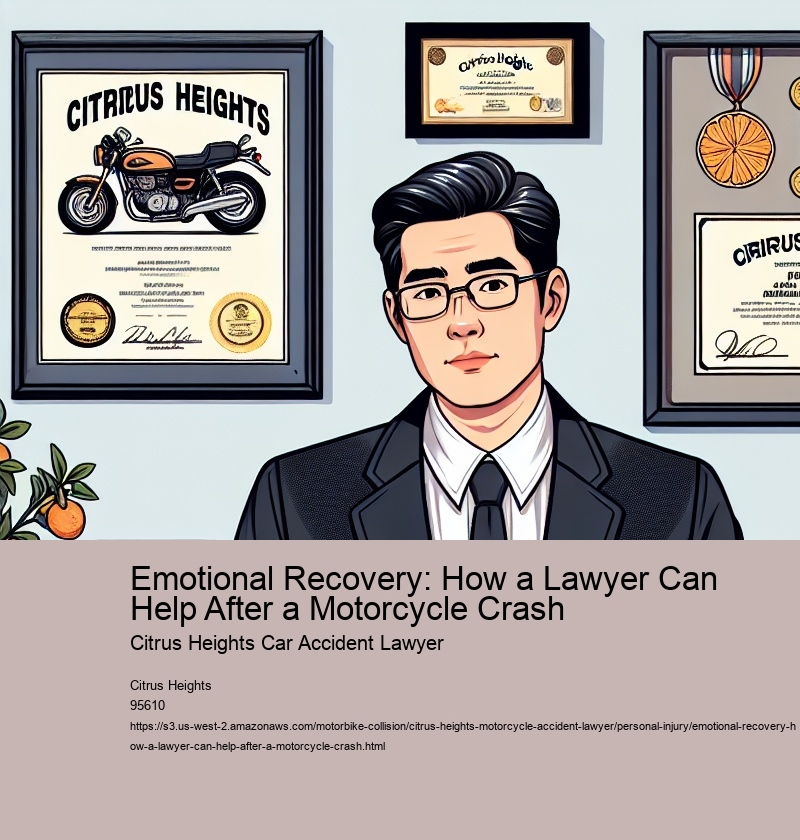Emotional Recovery: How a Lawyer Can Help After a Motorcycle Crash
psychological trauma
Emotional Recovery: How a Lawyer Can Help After a Motorcycle Crash
Motorcycle crashes can be harrowing experiences that leave scars not only on the body but also on the psyche. Urgent: Find a Citrus Heights Motorcycle Lawyer Before Its Too Late . The suddenness of the event, coupled with the physical pain and the shock of the impact, can lead to a whirlwind of emotions. Fear, anxiety, anger, and even depression are common emotional responses in the aftermath of such an ordeal.
Emotional Recovery: How a Lawyer Can Help After a Motorcycle Crash - legal settlement
- judge
- Placer County
- marketing
- pain
- soft tissue injury
- evaluation
- bicycle safety
- motorcycle racing
- trial

Firstly, one of the most profound ways a lawyer can aid in emotional recovery is by alleviating the stress associated with legal and financial uncertainties. cranial trauma Following a motorcycle crash, victims often find themselves overwhelmed by medical bills, insurance claims, and potential loss of income. legal liability These financial burdens can exacerbate feelings of anxiety and helplessness. By engaging a competent lawyer, individuals can delegate these concerns to a professional who is adept at handling such matters. accounting psychological trauma Lawyers can negotiate with insurance companies, seek fair compensation, and manage legal paperwork, allowing victims to focus more on their healing processes without the added stress of legal complications.

Furthermore, a lawyer can help validate the emotional experiences of the victim. In the aftermath of a crash, victims often grapple with feelings of injustice and frustration, especially if the accident was caused by another partys negligence. A lawyer serves as an advocate who acknowledges the victims trauma and stands up for their rights. This validation can be empowering, providing a sense of being heard and supported during a vulnerable time, which is crucial for emotional recovery.

Additionally, lawyers can guide victims to appropriate resources for emotional support. Orange County income Experienced personal injury lawyers have a network of professionals, including counselors and therapists, who specialize in trauma recovery. They can recommend these professionals to their clients, ensuring that they receive the psychological support necessary to process their emotions and begin healing. Access to therapy can be transformative, helping victims work through complex emotions and develop coping strategies for their new realities.
Moreover, the closure provided by a legal resolution can be an essential component of emotional recovery. The legal process, though often arduous, ends with a resolution that can bring a sense of closure to a traumatic chapter. Whether it results in a settlement or a court decision, reaching an endpoint in the legal journey can help victims move forward emotionally. A lawyer's role in achieving this closure cannot be understated; they navigate the complexities of the legal system to bring about a resolution that acknowledges the victims suffering and provides a path to moving on.
Lastly, its important to recognize that the relationship between a lawyer and a client in such cases can be more than just transactional. Lawyers who approach their clients with empathy and understanding can become a source of emotional support themselves. By maintaining open communication, showing compassion, and providing reassurance, lawyers can contribute positively to the emotional well-being of their clients.
In conclusion, while the primary role of a lawyer after a motorcycle crash might seem to revolve around legal matters, their impact on a victims emotional recovery is significant. By reducing stress, validating emotions, connecting clients with mental health resources, providing closure, and offering empathetic support, lawyers can play a pivotal role in helping individuals heal emotionally after a traumatic event. As victims work towards physical recovery, having a dedicated lawyer by their side can make the journey towards emotional recovery a little less daunting and a lot more hopeful.
